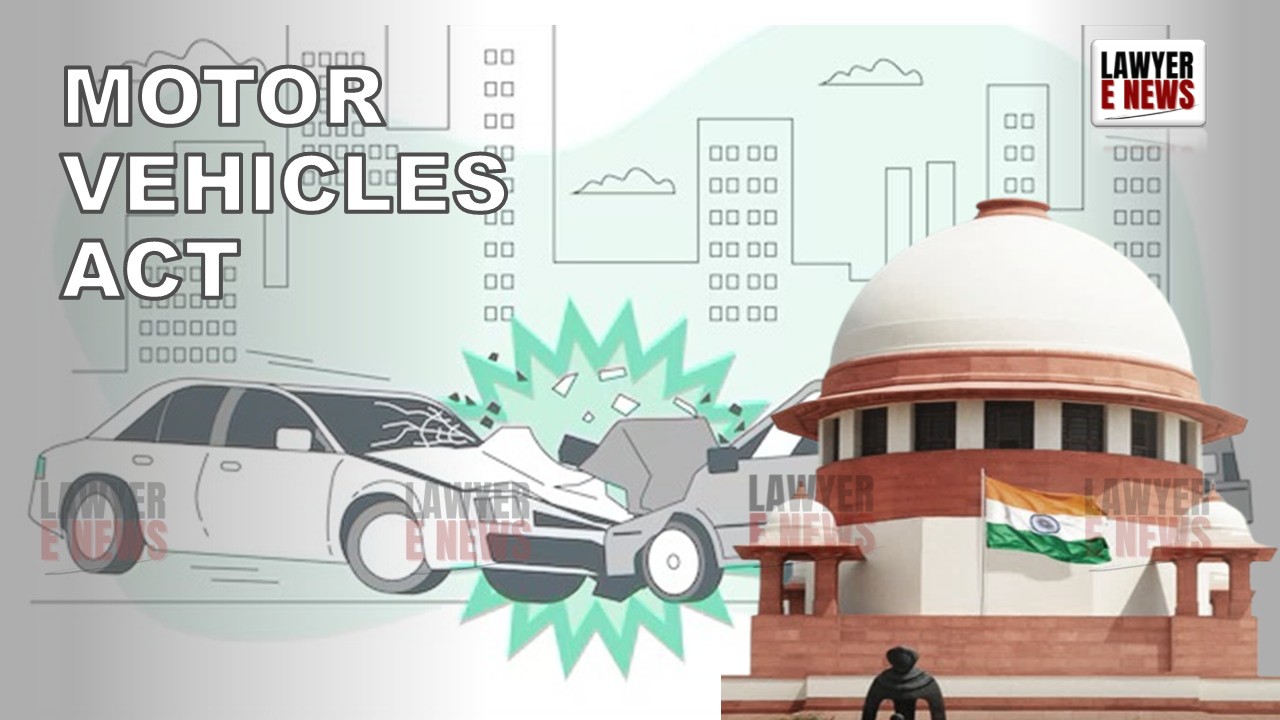-
by sayum
17 February 2026 8:32 AM



“The Root Cause Was the Tractor—Not Merely the Trailer Turning Turtle”: - Supreme Court of India confirming that when an insured tractor causes an accident while pulling an attached trailer, the insurer of the tractor can be held liable, even if the trailer is not independently insured. The Court affirmed that technical exclusions cannot defeat legitimate compensation claims, particularly when the cause of the accident lies in the operation of the insured vehicle.
The case arose from an incident dated February 29, 2012, where Nagarajappa, a labourer travelling on a trailer attached to a tractor, died due to the vehicle overturning as a result of rash and negligent driving by the driver. His widow and two minor daughters filed a compensation claim under the Motor Vehicles Act, 1988 before the MACT, Harihar, which awarded them ₹9.5 lakhs but held the owner and driver responsible—absolving the insurer, Royal Sundaram Alliance Insurance Company.
The claimants appealed to the High Court of Karnataka, which enhanced the compensation to ₹13,28,940 with 6% interest and held the insurance company liable to pay. This order was challenged before the Supreme Court.
Whether Insurer Can Be Held Liable When Deceased Was on an Uninsured Trailer Pulled by an Insured Tractor?
The insurance company argued that the trailer was not covered under the policy, and that it had explicitly excluded coverage for trailer occupants. Relying on the Supreme Court’s earlier decision in Dhondubai v. Hanmantappa Bandappa Gandigude, they asserted that no liability can arise for injuries or death caused by or on an uninsured trailer, even if attached to an insured tractor.
However, the Court found this argument overly technical and misplaced in the facts of the present case.
“It is not the case that only because of some fault on the part of the trailer stand-alone, the accident happened... the accident was caused by the tractor, as during the course of being driven/pulled by the tractor, the accident occurred.”
The Bench, comprising Justices Sudhanshu Dhulia and Ahsanuddin Amanullah, concluded that the trailer formed an integral part of the tractor’s operation, and hence the insurance coverage extended.
“This Court is duty-bound to be mindful of the ground realities of our nation and cannot let practicality be overshadowed by technicality.”
The Court categorically clarified the functional and legal linkage between the insured tractor and the trailer: “When the trailer is attached to the tractor which is insured, it becomes part of the tractor… There is no provision requiring the trailer to be separately insured to cover the third-party risk.”
This reasoning aligns with the Andhra Pradesh High Court’s decision in United India Insurance Co. Ltd. v. Koduru Bhagyamma, which the Court cited with approval.
Referring to its own precedents, including Ningamma v. United India Insurance Co. Ltd. and K. Ramya v. National Insurance Co. Ltd., the Supreme Court emphasised that the Motor Vehicles Act is a welfare legislation, and the focus must be on substance over form.
“The root cause of the accident being the tractor, which was insured, this crucial fact cannot be lost sight of.”
C.M. Jaya and Policy Limitations: Insurer’s Liability Cannot Exceed Contractual Terms
While affirming insurer liability, the Court also acknowledged the principle from New India Assurance Co. Ltd. v. C.M. Jaya, stating: “A statutory liability cannot be more than what is required under the statute itself… In the absence of such a term or clause in the policy, a limited statutory liability cannot be expanded.”
Accordingly, the Court limited the insurer’s mandatory payout to ₹9.5 lakhs, observing: “The amount exclusively payable by the Appellant, however, shall in no case be less than ₹9,50,000.”
The insurer was given liberty to recover the balance from the owner if the total compensation awarded exceeded its policy limits.
In a nuanced judgment balancing technical insurance terms and the social justice orientation of motor vehicle compensation law, the Supreme Court ruled that an insurer of a tractor is liable for an accident involving an attached trailer, even if the trailer itself is uninsured. What matters is the root cause of the accident, which was here found to be the tractor’s movement.
“The accident was caused by the tractor… the insurance company is liable to pay, subject to its policy limits.”
Date of Decision: May 5, 2025
